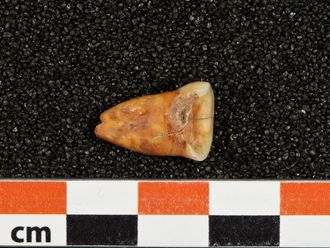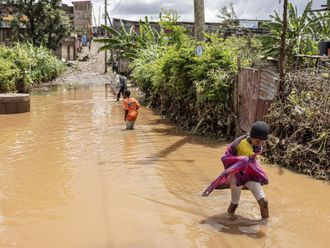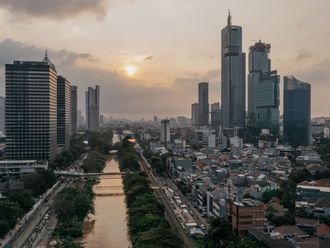Nairobi: Islamist insurgents controlling southern Somalia have accused Kenyan troops of crossing into their territory and warned the east African nation to stop troop movements along their common border.
The group has been angry at Kenya since it helped to capture Islamists trying to flee Ethiopian and Somali government troops in early 2007.
"Kenya has been making false allegations of facing danger from the border, and that is a great danger to the region's security and stability," the Islamists said on their web site www.kataaib.info.
"We believe that they intend to destroy the Islamic administration implemented in Somalia," said Al Shabaab, a hardline Islamist group opposed to a new moderate president.
Kenyan Foreign Affairs Minister Moses Wetangula said duty to patrol the border must not be seen as passing troops to Somalia.
"Kenya has continuously patrolled its borders with Somalia because we are neighbouring an unstable country... a failed state. We don't want to take anything for granted," he said.
Kenya closed the 1,200 kilometre border after the Ethiopians chased the Islamic Courts Union from Mogadishu early in 2007, but the flow of refugees increased despite the closure.
In December, Al Shabaab crossed into the country through the remote border town of El Wak and kidnapped two Italian nuns who were held in Mogadishu for 101 days.
Al Shabaab, which is on Washington's list of terrorist groups, and allied Islamist militia control most of southern Somalia.
Al Shabaab's statement came as newly elected President Shaikh Shariff Ahmad began his first official visit to Kenya since his election last month.
Ahmad was the leader of the Islamic Courts Union that controlled large swathes of southern Somalia and the capital Mogadishu. He was picked up by Kenyan security on the border after the ouster by Ethiopian troops in early 2007.
On Sunday, he was back in Kenya, this time as a Head of State and was given the red carpet treatment and received by the foreign affairs minister.
"I am visiting Kenya to re-establish the brotherly relations and the close cooperation between our countries," he said on arrival.
Ahmad was expected to meet with President Mwai Kibaki yesterday. He will also visit Uganda and Burundi, which contribute troops to a 3,500 strong African Union peace force in Mogadishu.
Analysts say Al Shabaab is the biggest threat to the new government, the 15th attempt to bring peace to the Horn of Africa country, which has been without a government since 1991.
At least 16,000 civilians have been killed and a million more driven from their homes since the Islamist insurgency began, while the ensuing humanitarian crisis has been termed one of the worst in the world.












